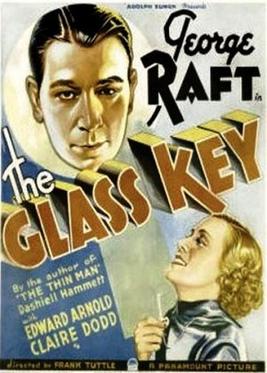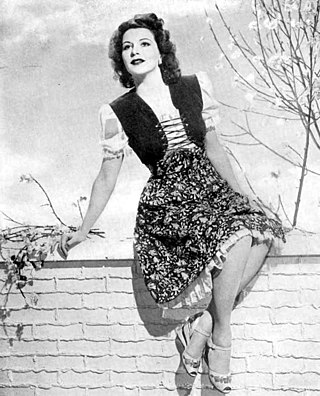
Wallace Fitzgerald Beery was an American film and stage actor. He is best known for his portrayal of Bill in Min and Bill (1930) opposite Marie Dressler, as General Director Preysing in Grand Hotel (1932), as Long John Silver in Treasure Island (1934), as Pancho Villa in Viva Villa! (1934), and his title role in The Champ (1931), for which he won the Academy Award for Best Actor. Beery appeared in some 250 films during a 36-year career. His contract with Metro-Goldwyn-Mayer stipulated in 1932 that he would be paid $1 more than any other contract player at the studio. This made Beery the highest-paid film actor in the world during the early 1930s. He was the brother of actor Noah Beery and uncle of actor Noah Beery Jr.
Robert Florey was a French-American director, screenwriter, film journalist and actor.

William Albert Henry was an American actor who worked in both films and television.

Kent Taylor was an American actor of film and television. Taylor appeared in more than 110 films, the bulk of them B-movies in the 1930s and 1940s, although he also had roles in more prestigious studio releases, including Merrily We Go to Hell (1932), I'm No Angel (1933), Cradle Song (1933), Death Takes a Holiday (1934), Payment on Demand (1951), and Track the Man Down (1955). He had the lead role in Half Past Midnight in 1948, among a few others.

Claire Dodd was an American film actress.

Cash and Carry is a 1937 short subject directed by Del Lord starring American slapstick comedy team The Three Stooges. It is the 25th entry in the series released by Columbia Pictures starring the comedians, who released 190 shorts for the studio between 1934 and 1959.

The Glass Key, released in 1935, was based upon the 1931 suspense novel The Glass Key by Dashiell Hammett, directed by Frank Tuttle, starring George Raft and featuring Edward Arnold, Claire Dodd, Guinn "Big Boy" Williams and Ray Milland. Ann Sheridan has a brief speaking role as Raft's character's nurse in their first film together.

Julie Bishop, previously known as Jacqueline Wells, was an American film and television actress. She appeared in more than 80 films between 1923 and 1957.

Hobart Cavanaugh was an American character actor in films and on stage.

College Coach is a 1933 American pre-Code drama film starring Dick Powell and Ann Dvorak. The film features John Wayne in his last bit-part role.

Gambling Lady is a 1934 American pre-Code romantic drama film directed by Archie Mayo, and starring Barbara Stanwyck, Joel McCrea and Pat O'Brien.

Ex-Lady is a 1933 American pre-Code comedy/drama film directed by Robert Florey. The screenplay by David Boehm is a remake of the Barbara Stanwyck film Illicit (1931), both crediting a story by Edith Fitzgerald and Robert Riskin. The film focuses on a pair of lovers, commercial illustrator Helen Bauer and advertising writer Don Peterson, who have been living together quite happily for some time. One night, after hiding in Helen's bedroom until their party guests have all left, Don announces that he is tired of sneaking around. He wants marriage—and possibly children—and Helen finally agrees, although she is afraid that it will wreck their relationship. Her predictions of trouble—increased by the stresses of opening their own advertising agency—come true, but in the end, with the serendipitous intervention of their perpetually inebriated friend, Van, they reconcile and resume the mixed blessings of wedded bliss.

Patricia Ellis was an American film actress of the 1930s.

Joan Elmer Woodbury was an American actress beginning in the 1930s and continuing well into the 1960s.

Dorothy Appleby was an American film actress. She appeared in over 50 films from 1931 to 1943.

Massacre is a 1934 American drama film directed by Alan Crosland. The film stars Richard Barthelmess and Ann Dvorak as its Native American protagonists, and also features Charles Middleton, Sidney Toler, Claire Dodd and Clarence Muse.

James Bush was an American actor from the 1930s until the early 1950s. He appeared in more than 100 television shows and films, more than 80 of them being feature films.

Daring Young Man is a 1942 American comedy film directed by Frank R. Strayer, which stars Joe E. Brown, Marguerite Chapman, and William Wright. Brown plays the dual roles of a failure turned champion bowler, Jonathan Peckinpaw, and his own grandmother. The original screenplay was written by Karen DeWolf and Connie Lee. The supporting cast features Claire Dodd, Lloyd Bridges, and a cameo appearance by Arthur Lake as Dagwood Bumstead.

Adrian Michael Morris was an American actor of stage and film, and a younger brother of Chester Morris.
The Women's Home Internationals were an amateur team golf championship for women contested between the four Home Nations of England, Scotland, Wales and Ireland, where Ireland was represented by the whole island of Ireland on an All-Ireland basis. After the Ladies' Golf Union, the former governing body for women's golf in Great Britain and Ireland, merged into The R&A in 2016, The R&A took over organisation of the event. The match was played annually and the venue cycled between the four nations. In 2022 the match was replaced by a combined Women's and Men's Home Internationals.


















